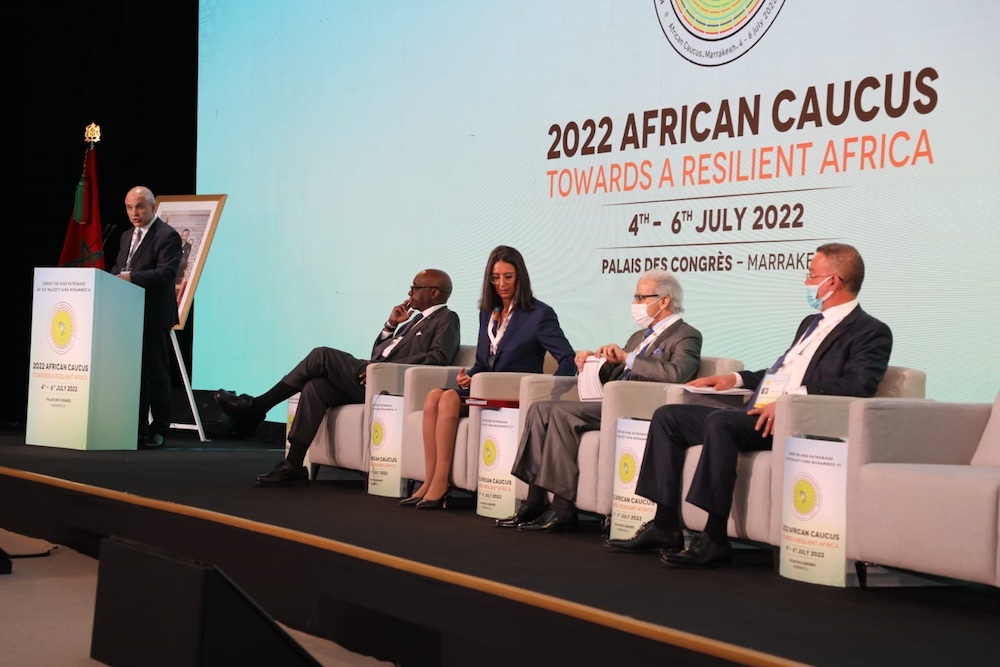If a major lesson is to be drawn from the systemic financial crisis in the global economy today, it is the need for Africa to promote intra‐regional trade.
Trade is widely accepted as an important engine of economic growth and development. There are many regions and countries of the world that have been able to lift their people from poverty to prosperity through trade.
In Africa however, trade has not served as a potent instrument for the achievement of rapid and sustainable economic growth and development for many countries. As a consequence, Africa remains the most dependent continent in the world, unable to eliminate poverty through trade.
In today’s increasingly interdependent global economy, Africa cannot delink itself from trading with the outside world. However, the continent can reduce its vulnerability to financial crisis and improve its trade and economic performance if its market integration is deepened and the countries do more of their external trade with each other.
A key feature of Africa’s trade is its relatively low level of intra‐regional trade. Intra‐African trade stands at around 10 per cent compared to 60 per cent, 40 per cent, and 30 per cent intra‐regional trade that has been achieved by Europe, North America, and ASEAN respectively. Even if allowance is made for Africa’s unrecorded informal cross‐border trade, the total level of intra‐African trade is not likely to be more than 20 per cent, which is still lower than that of other major regions of the world.
The fact that African countries do not trade much with each another has meant that they have been unable to fully harness potential and take full advantage of the economies and other benefits such as income and employment generation that greater market integration would have provided. There are situations where products and services could have been sourced competitively from other African countries but were procured from outside the continent.
Since Africa does the bulk of its trade with the outside world and the exports are heavily concentrated on primary commodities, the continent has been particularly vulnerable to external macroeconomic crises and trade policies. This is evident from the recent global economic and financial crisis which, although not of the making of African countries, has had an adverse impact on the continent’s economic performance.
When African countries trade with themselves they exchange more manufactured and processed goods, have more knowledge transfer, and create more value. Manufactured goods make up a much higher proportion of regional exports than those leaving the continent. Right now, Africa has about 3 per cent of all world trade, which is hard to believe when you think about all of the tremendous resources that they have – oil, diamonds, and gold, not to mention all the agricultural products such as coffee, tea, cocoa, etc.
Boosting intra‐African trade and deepening regional market integration constitute a necessary response to the challenges facing Africa in the global economy. The boosting of intra‐African trade and the deepening of Africa’s market integration, by fostering competition among African countries, will assist in enhancing their capacity and prepare them to compete more effectively on the global market.
The growth of intra‐African trade has been constrained by several factors. These include differences in trade regimes; restrictive customs procedures, administrative and technical barriers; limitations of productive capacity; inadequacies of trade‐related infrastructure, trade finance, and trade information; lack of factor market integration; and inadequate focus on internal market issues. Each of these constraints needs to be addressed.
The boosting of intra‐African trade also requires that the trade policy of African countries be designed or differentiated in such a way that no other African country would receive less favourable treatment than is given to a non‐African country.
If the objectives of the African Continental Free Trade Area, AfCFTA are to be achieved, regional and continental market integration must be accorded some priority. The real test for the AfCFTA will be how quickly African countries can accelerate export diversification and make trade more inclusive.
While developed countries still dominate African trade, recent trends indicate that Africa is emerging as an attractive investment destination and a key market for goods and services. With a working population of 600 million set to double by 2040, overtaking both China and India and an improving business environment, Africa is poised to become the world’s next emerging economy.
To turn its economic gains into sustainable growth and shared prosperity, Africa’s public and private sectors must work together to connect the continent’s markets, deepen regional integration, and adopt reforms that enhance competitiveness.


